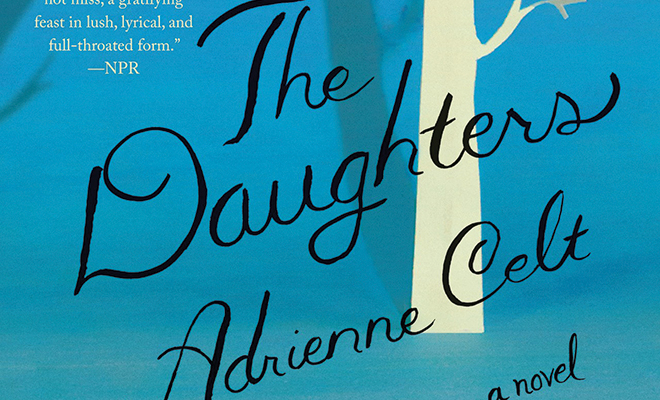
The Daughters by Adrienne Celt
Adrienne Celt’s first novel won the 2015 PEN Southwest Book Award and was named a Best Book of the Year by NPR. Her writing has been recognized by the PEN/O. Henry Prize, and her fiction has appeared in Esquire, The Kenyon Review, Epoch, Prairie Schooner and Ecotone.
Lions and tigers and bears, oh, my! You probably don’t have any in your house right now, but the kitty and puppy lying nearby might sometimes seem as ferocious as their larger cousins. As you’ll see in the new book My Patients and Other Animals by Suzy Fincham-Gray, we’re wild for our pets!
In Adrienne Celt’s first novel, she introduces the internationally known soprano Lulu and the world of opera to her readers. She has delved into the relationships between daughters and their mothers. She has explored Polish folklore. Finally, she tackled modern love. The book is characterized by complex, unusual and strange meanderings throughout the novel.
The story begins when Lulu gives birth to Kara, whose arrival caused Lulu to have a rupture or dehiscence of the uterus. The doctor said, “She was a little too eager to come into the world.” Lulu believes that she is suffering from the family curse, through which each mother loses or gives up something to her daughter. Greta, Lulu’s great-grandmother, is the first one to become affected by the rusalka, or the water nymph. Because of her, all the women in the family are cursed. It’s part of the deal Greta made with the devil.
Lulu is afraid she will never heal and that the wound could open again at any moment, so she can’t sing. Husband John is worried about Lulu, but what can he do? Lulu is also mourning the death of her beloved grandmother, Ada, who died trying to force her way into the delivery room so she could sing to the new baby girl, a tradition that her mother had started years earlier. After all, according to Baba Ada, Greta made a deal with the devil. It’s a little hard to keep the story straight since Ada tells the story a little differently each time she tells it. Lulu is unconscious, so she’s unaware of the war raging between her husband and her grandmother during the birth of Kara.
Later, as the days of recovery lengthen, Lulu is still unable to sing. She won’t try to sing. She uses her scar, her wound, as her excuse. In reality, she is afraid that she has lost her voice because of all the tales Ada told her throughout her life. Lulu is afraid that Kara has cursed her and has taken her voice.
Lulu’s talent was evident from her childhood. Ada faithfully read books on opera in order to train Lulu. Her training may have been a little unorthodox, but her talent is sure. Lulu feels her midriff to be sure her diaphragm is in the correct position; she opens her arms wide so her lungs can fill properly. Lulu avoids contaminants such as her mother’s cigarette smoke that affect her voice. Lulu knows how to use each part of her body to maximum effect.
The birth of Kara creates another problem for Lulu. She’s guilty of infidelity and doesn’t know how to tell John. John seems oblivious to the fact that Kara doesn’t look like either of them, but Lulu sees the differences every time she looks at Kara. Lulu knows exactly when she became pregnant and with whom. Mr. Richie Rich—Finn, that is. Finn, who invited her to sing at his birthday party in Tucson, is Kara’s real father. She finally dares to sing at Kara’s christening and promptly faints. John waves everyone away from Lulu, and Lulu confesses while lying in his arms. The rest of the novel is the coming to terms with all the folklore, the desire to sing again, her motherhood, and her relationship with John.
Adrienne Celt has written essays, cartoons and short fiction for different magazines. This first novel is an incredibly complex modern romance filled with references to the Polish rusalka. Celt demonstrates familiarity with the opera, adding another wonderful dimension to the novel. Through Lulu, she explains different operatic composers. For example, “Vivaldi’s tone is light and seems to follow the seasons.” “Bach’s music always says what it means…clarity is not at odds with transcendence.” Celt glosses operatic ambition and talent in a way that makes the world of Lulu seem all the more real for the reader.
At the heart of the novel is the relationship between mothers and daughters. The relationship is not always an easy one; often it is fraught with resentments and the ensuing tension. In The Daughters, the tension simmers among Ada, Sara and Lulu throughout their lives. As each daughter has more talent than the previous one, one wonders, as does Lulu, if her daughter Kara will ultimately be the best singer.
In the hands of a less skillful writer, the novel could easily have become a melodrama. As it is, Celt has achieved a haunting story that will be remembered long after the reader finishes the novel. ■







